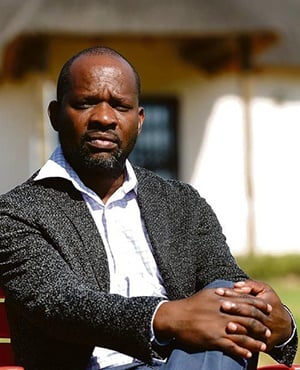
As the land expropriation without compensation debate rages on, a question that looms large in our minds is how this will affect our communities and their land.
This question has been partially answered by the leadership of the ANC, which assured us that communal land would not be affected by land expropriation without compensation.
We need critical answers and solutions regarding the ownership of communal land, including empowerment programmes for local people.
The recent fracas about the ownership of communal land by the Ingonyama Trust in KwaZulu-Natal compels us to introspect and find viable solutions.
Communal land currently belongs to the state, which owns it in trust on behalf of the people.
This land is administered by traditional leaders and sometimes local municipalities in terms of allocation of sites for residential, agriculture and business purposes.
The so-called permission to occupy (PTO) is usually issued instead of title deeds.
Thus the majority of people in rural areas have PTOs instead of title deeds.
There is a strong and plausible argument that people in rural areas should be given title deeds as these are more economically viable than PTOs.
For instance, many people in rural areas are denied housing bonds and loans by banks simply because they do not have title deeds to their allocated stands.
This status quo infringes on the constitutional rights of local people to have decent housing and benefit from economic opportunities that are only accessible with title deeds.
The ANC government should resist the temptation to hold on to communal land forever; it should release land to members of the community with full title deeds.
Government should also consider issuing conditional title deeds, making it compulsory that allocated land should be used productively to benefit owners and local communities.
The principle of “use it or lose it” must apply in the allocation of communal and other land.
This would be an effective way of addressing the current challenge of vast tracts of communal land that remains fallow and unused.
The disadvantaged and marginalised people in rural areas are the de facto beneficiaries of land expropriation without compensation as championed by President Cyril Ramaphosa.
As many people do not have the means and expertise to utilise abundant and fertile land in rural areas, it is rather petrifying to fathom a scenario in which expropriated land would become unproductive owing to lack of capacity.
As the ANC leadership consistently promises that there will be no socioeconomic crisis arising from land expropriation without compensation, it is our humble submission that priority should be given to beneficiaries who have the capacity and commitment to maintain or improve the levels of productivity of land.
This requires a sober approach with measurable criteria for land redistribution to secure or increase the number of jobs and economic opportunities irrespective of change of land ownership.
The challenge of unproductive land in rural areas is compounded by the inherent lack of land-use planning among most traditional leaders and their dysfunctional structures.
It should be made compulsory that all areas under traditional leadership should have standardised land-use planning practices to avoid haphazard land allocation, which results in massive underdevelopment.
The ever-escalating tensions between traditional authorities and local municipalities regarding land ownership in rural areas add a further complexity to the future of communal land.
We are therefore enjoined to establish harmony that is based on mutual respect and common understanding among all the role players.
Such a formula can only work if leaders consistently take decisions that are always in the best interest of members of the local communities.
The way forward on communal land should therefore entail a spectrum of innovative, practical and creative programmes for sustainable development so that our communities derive tangible benefits from their natural assets, especially the land.
This mammoth task can only be achieved by establishing a critical mass of selfless, progressive and pragmatic traditional leaders and councillors in rural areas.
Chief Matsila is a member of the ANC in good standing




 Publications
Publications
 Partners
Partners








